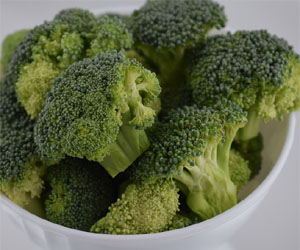


Discovering A World Of Benefits

In recent years, the gluten-free lifestyle has gained immense popularity, with many individuals choosing to eliminate gluten from their diets. While this dietary shift is essential for those with gluten sensitivity or celiac disease, it has also attracted attention from people looking to make healthier food choices and improve their overall well-being. In this article, we will explore the numerous benefits of a gluten-free lifestyle.
Relief From Gluten Sensitivity and Celiac Disease: For individuals with gluten sensitivity or celiac disease, consuming gluten can lead to a range of health issues, from digestive problems to skin conditions. Going gluten-free provides much-needed relief and prevents the adverse effects of gluten consumption.
Improved Digestion: Many people report better digestion when they adopt a gluten-free diet. This is particularly true for those with non-celiac gluten sensitivity, who may experience less bloating, gas, and abdominal discomfort.
Increased Energy: Eliminating gluten from your diet can lead to increased energy levels. When your body no longer has to deal with the inflammation and digestive distress caused by gluten, you may find yourself feeling more energetic and alert.
Better Skin Health: Gluten sensitivity is often linked to skin conditions such as eczema and psoriasis. Going gluten-free may lead to healthier, clearer skin.
Weight Management: While gluten-free doesn't necessarily mean low-calorie, many people find that they naturally reduce their calorie intake when they eliminate gluten-containing foods. This can be beneficial for weight management and achieving a healthier body composition.
Balanced Blood Sugar: A gluten-free diet can help maintain more stable blood sugar levels, which is beneficial for individuals with diabetes or those looking to reduce their risk of developing the condition.
Reduction In Inflammation: Gluten has been associated with inflammation in the body, and reducing or eliminating it from your diet may help manage chronic inflammatory conditions like arthritis.
Improved Nutrient Intake: When transitioning to a gluten-free lifestyle, many individuals become more conscious of their food choices. This often leads to a diet that's higher in nutrient-rich, whole foods such as fruits, vegetables, lean proteins, and gluten-free grains like quinoa and rice.
Mindful Eating Practices: Adopting a gluten-free lifestyle encourages mindfulness about food choices. Reading labels effectively and being vigilant about hidden sources of gluten can promote a healthier and more conscious approach to eating.
Diverse Food Choices: Going gluten-free doesn't mean you have to sacrifice taste or variety. Many delicious gluten-free alternatives are available, including gluten-free pasta, bread, and baked goods. This encourages exploration of new and exciting foods.
Emotional Well-Being: For some individuals, eliminating gluten can have a positive impact on mood and overall emotional well-being. This might be due to the reduction in physical discomfort or inflammation.
The benefits of a gluten-free lifestyle are numerous and extend beyond those who have gluten-related medical conditions. By embracing this dietary change, many people experience better health, increased energy, and a newfound appreciation for mindful eating. If you're considering a gluten-free lifestyle, it's essential to consult with a healthcare professional or a registered dietitian to ensure you meet your nutritional needs while avoiding gluten-containing foods. With proper guidance, you can reap the benefits of a gluten-free lifestyle while enjoying a delicious and fulfilling diet.






Simplify Your Culinary Journey
 The Benefits Of Easy Cooking
The Benefits Of Easy Cooking
Time-Saving: Easy cooking methods typically save time, making them ideal for busy individuals or families. You can whip up a delicious meal in a short amount of time.
Cost-Effective: Many easy cooking techniques use affordable ingredients and require fewer kitchen gadgets. This can lead to cost savings in your grocery bill and reduce the need for specialized equipment.
 Chamomile: Chamomile is perhaps one of the most well-known herbs for stress relief. Its gentle, soothing qualities can help calm the mind and relax the body. Chamomile tea is a popular choice, but it's also available in the form of supplements or essential oils.
Chamomile: Chamomile is perhaps one of the most well-known herbs for stress relief. Its gentle, soothing qualities can help calm the mind and relax the body. Chamomile tea is a popular choice, but it's also available in the form of supplements or essential oils.
Lavender: Lavender's delightful aroma is not just pleasant; it has calming properties that can reduce anxiety and stress. You can use lavender essential oil in a diffuser, add a few drops to your bath, or even apply it topically.
Valerian Root: Valerian root is known for its sedative effects and is often used to improve sleep quality. Better sleep can significantly reduce stress. It's available as a supplement or in herbal tea blends.
Ashwagandha: Ashwagandha is an adaptogenic herb that can help the body better manage stress. It supports the adrenal glands and promotes a sense of calm and relaxation.
Passionflower: Passionflower is a traditional remedy for anxiety and nervousness. It can help relax the mind and ease tension.
Rhodiola: Rhodiola is another adaptogenic herb that can enhance the body's response to stress. It may also improve mental and physical performance during stressful periods.
Ginseng: Ginseng is an adaptogen that can improve the body's resilience to stress. It's available in different forms, such as Asian ginseng or Siberian ginseng.
Lemon Balm: Lemon balm has a mild sedative effect and can promote relaxation. It's often consumed as a tea or used as an essential oil.
Kava Kava: Kava kava is known for its calming and anxiety-reducing effects. It's often used to alleviate symptoms of generalized anxiety disorder and is available as a supplement.
Nourishing Your Way To Optimal Well-Being
 2. Antioxidant Power: Antioxidants, which are abundantly present in many superfoods, combat oxidative stress and protect the body from free radicals. This protection can lead to enhanced vitality and longevity by reducing the risk of chronic diseases and aging-related damage.
2. Antioxidant Power: Antioxidants, which are abundantly present in many superfoods, combat oxidative stress and protect the body from free radicals. This protection can lead to enhanced vitality and longevity by reducing the risk of chronic diseases and aging-related damage.
3. Energy Boost: Superfoods are packed with macronutrients that provide sustainable energy. Complex carbohydrates in foods like quinoa, healthy fats in avocados, and plant-based proteins in chia seeds can keep you energized throughout the day, allowing you to seize life's opportunities with vigor.
4. Immune Support: Many superfoods, such as citrus fruits, garlic, and ginger, offer essential nutrients and compounds that strengthen the immune system. A robust immune system is key to warding off illness and maintaining vitality.
5. Inflammation Control: Chronic inflammation is a root cause of numerous health problems, from heart disease to joint pain. Superfoods like berries, turmeric, and leafy greens have anti-inflammatory properties that help combat inflammation and promote overall well-being.
6. Skin Radiance: The appearance of your skin is often a reflection of your overall health. Superfoods like sweet potatoes, which are rich in beta-carotene, and nuts, which provide healthy fats, can contribute to a vibrant complexion and skin health.
7. Cognitive Clarity: Superfoods that are high in omega-3 fatty acids, like fatty fish and walnuts, support brain health and cognitive function. A sharp mind and mental clarity are essential for vitality and quality of life.
8. Digestive Health: A well-functioning digestive system is vital for nutrient absorption and overall vitality.
Nurturing Strong Bonds
 Long-Term Bonding: Resilient relationships are more likely to withstand the test of time. By learning to adapt to each other's changing needs and circumstances, couples and families can build enduring bonds.
Long-Term Bonding: Resilient relationships are more likely to withstand the test of time. By learning to adapt to each other's changing needs and circumstances, couples and families can build enduring bonds.
Practical Strategies For Building Resilience In Relationships
Effective Communication: Open, honest, and empathetic communication is the foundation of resilient relationships. Encourage active listening and express feelings and concerns constructively.
Conflict Resolution Skills: Learn how to resolve conflicts in a healthy way. Use "I" statements to express your feelings and avoid blaming. Seek compromise and solutions that benefit both parties.
Emotional Intelligence: Develop emotional intelligence by recognizing and managing your emotions and those of your loved ones. Understanding and regulating emotions can prevent unnecessary conflict.
Quality Time: Spend quality time with your loved ones. These shared experiences create a sense of togetherness and strengthen your connection.
Respect Boundaries: Respect each other's boundaries and individuality. It's crucial to give each person the space and autonomy they need.
Adaptability: Understand that life brings change, and relationships must adapt. Flexibility and a willingness to adjust to new circumstances are key to resilience.
Problem-Solving: Work together to find solutions to challenges. Instead of dwelling on problems, focus on identifying actionable steps to address them.
Maximizing Your Kitchen Productivity
 3. Multi-Task
3. Multi-Task
Efficient cooking often involves multi-tasking. While one dish is simmering, you can be chopping ingredients for the next one. Just be sure to keep an eye on what's cooking to prevent burning or overcooking.
4. Use Kitchen Appliances
Kitchen appliances like food processors, blenders, and slow cookers can save you a lot of time and effort. Food processors can quickly chop, slice, and shred vegetables, while slow cookers allow you to prepare meals in the morning and return to a ready dinner in the evening.
5. Cook In Batches
Cooking efficiency is all about making the most of your time. When preparing meals, consider making extra portions. Leftovers can be used for future meals, eliminating the need to cook from scratch every day.
6. Embrace One-Pot And Sheet Pan Meals
One-pot and sheet pan meals are a time-saving marvel. They involve cooking an entire meal in a single pot or on a single sheet pan, minimizing cleanup and simplifying the cooking process.
7. Time-Saving Ingredients
Choose ingredients that are quick to cook or require minimal preparation. For example, opt for boneless, skinless chicken breasts over whole chickens, or use canned beans instead of dried ones that require soaking and long cooking times.
8. Learn Quick Cooking Techniques<
Mastering fast cooking techniques like stir-frying, sautéing, and pan-searing can help you prepare meals in minutes. These methods are not only efficient but also help retain the flavor and nutrients in your food.
9. Organize Your Kitchen
An organized kitchen is a key to cooking efficiency. Keep your kitchen well-arranged, with pots and pans easily accessible, utensils at arm's reach, and spices organized for quick retrieval.
10. Clean As You Go
Efficient cooking also involves cleaning as you go. This means washing dishes, utensils, and countertops as you finish using them, rather than letting the mess pile up.
Harnessing Nature's Healing Power
 Aromatherapy: An Age-Old Practice
Aromatherapy: An Age-Old Practice
Aromatherapy finds its roots in ancient civilizations, where aromatic compounds derived from plants were used for their healing properties. These natural extracts, known as essential oils, are now being rediscovered as potent tools for enhancing health.
Physical Well-Being
The physical aspect of health is a cornerstone of overall well-being. Aromatherapy oils offer a wide range of benefits in this area. Essential oils such as lavender, eucalyptus, and tea tree oil are renowned for their ability to alleviate physical ailments. Lavender, for instance, is celebrated for its calming properties, making it an excellent choice for reducing stress and promoting relaxation. Eucalyptus and tea tree oil, on the other hand, are well-suited for respiratory health and can help relieve symptoms of congestion and coughs.
Emotional Well-Being
Emotions play a crucial role in our health, and aromatherapy oils have the potential to uplift our spirits and promote emotional balance. Scents like citrus, rose, and chamomile can enhance mood and reduce stress. By inhaling these fragrances or using them in relaxation rituals, individuals can experience a positive shift in their emotional states, fostering emotional well-being.
Mental Well-Being
Cognitive health is another vital component of overall well-being. Aromatherapy oils can enhance mental clarity, reduce stress, and improve concentration. Oils like peppermint and rosemary are particularly effective at boosting cognitive function.
A Key To Heart Health And Overall Well-Being
 The Importance Of Cardiovascular Fitness
The Importance Of Cardiovascular Fitness
Heart Health: Cardiovascular fitness directly impacts heart health. Regular aerobic exercise strengthens the heart muscle, making it more efficient at pumping blood and reducing the risk of heart disease.
Improved Circulation: As cardiovascular fitness improves, blood vessels become more efficient at carrying oxygen-rich blood throughout the body. This can reduce the risk of high blood pressure and improve overall circulation.
Weight Management: Engaging in cardiovascular exercise helps burn calories, aiding in weight management and reducing the risk of obesity.
Enhanced Endurance: Improved cardiovascular fitness leads to increased endurance, making everyday tasks easier and reducing fatigue during physical activities.
Mental Well-Being: Cardiovascular exercise releases endorphins, which can improve mood, reduce stress, and enhance cognitive function.
Ways To Improve Cardiovascular Fitness
Aerobic Exercise: Engage in aerobic activities such as running, swimming, cycling, brisk walking, and dancing. Aim for at least 150 minutes of moderate-intensity aerobic exercise or 75 minutes of high-intensity aerobic exercise each week.
Interval Training: Incorporate interval training, which involves alternating between short bursts of high-intensity exercise and brief recovery periods. This approach can be highly effective in improving cardiovascular fitness.
Consistency: Consistency is key to improving cardiovascular fitness. Make exercise a regular part of your routine, gradually increasing the intensity and duration.